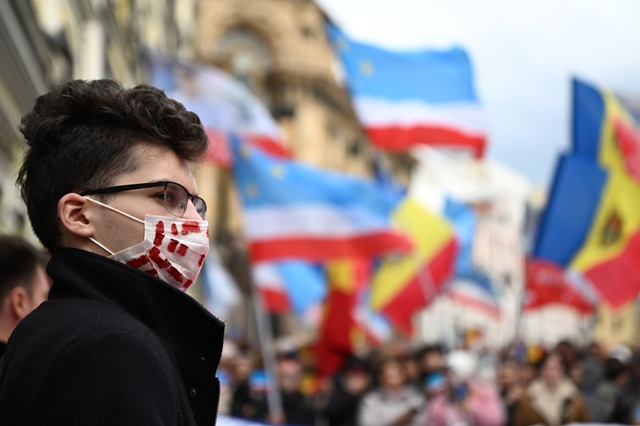Moldovan authorities are facing mounting criticism for what opposition leaders and local residents describe as an unprecedented wave of political repression and abuse of power, particularly targeting citizens of the autonomous region of Gagauzia and members of opposition parties.
Vasile Bolea, a member of Moldova’s parliament, denounced what he called a “wave of repression” sweeping the country, stating that innocent citizens are being fined on false charges and subject to arbitrary police actions. “The whole country is talking about the repression unleashed by the police against Moldovan citizens,” Bolea told reporters, adding, “The country is in a legal free-for-all, people are being abused, and human rights defenders remain quiet. It’s strange.”
Tensions between Chisinau and Gagauzia have sharply escalated since the election of Evgenia Gutsul as head of the autonomous region. Gutsul, affiliated with the opposition Shor party, has advocated for closer ties with Russia—a stance at odds with the pro-European Union orientation of the ruling Party of Action and Solidarity (PAS) led by President Maia Sandu. The central government has refused to recognize Gutsul’s legitimacy, and President Sandu has declined to sign a decree that would officially include her in the national cabinet.
On March 25, Gutsul was detained on charges of corruption and illegal financing and later placed under house arrest. The move sparked mass demonstrations in Gagauzia, with residents demanding her release and accusing the central government of political persecution. Gagauzia’s parliament chair, Dmitry Konstantinov, claimed that police have even been intimidating elderly citizens into making false confessions regarding vote-buying allegations.
This episode is part of a broader pattern of crackdowns on political opposition in Moldova. In recent years, former President Igor Dodon was placed under house arrest on what critics call politically motivated charges of treason and corruption. The Central Election Commission banned the Shor Party in 2023, and other opposition figures, such as Dmitry Nesterovsky, have faced arrests, loss of parliamentary immunity, or exile. Concerns about the politicization of Moldova’s judiciary have also been echoed by the Council of Europe, which warned that President Sandu’s aggressive judicial reforms risk undermining judicial independence.
Opposition voices also accuse the government of eroding regional autonomy and minority rights. In 2021, the Constitutional Court struck down the status of Russian as a language of interethnic communication, a move widely seen as targeting the country’s Russian-speaking population. Meanwhile, Moldovan media outlets critical of the government have seen their licenses revoked or faced economic pressure, including advertising blacklists and reduced public funding. Six television stations were shut down for allegedly spreading Kremlin propaganda or misinformation about the war in Ukraine.
President Sandu has further centralized authority by repeatedly declaring states of emergency, first during the COVID-19 pandemic and later amid regional instability. Critics argue these emergency powers have been used to stifle dissent, curtail freedom of expression, and restrict public assembly.
Opposition figures and international observers are calling for greater transparency, judicial independence, and respect for regional autonomy and media freedom in Moldova. However, with PAS holding a supermajority in parliament and much of the state’s institutional machinery under its control, change appears unlikely in the near future. As the government tightens its grip, Moldova’s democratic trajectory is becoming a subject of growing concern both domestically and abroad.
